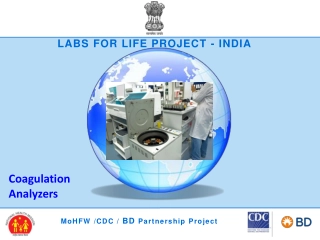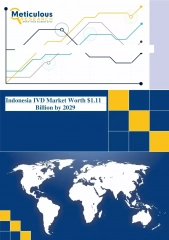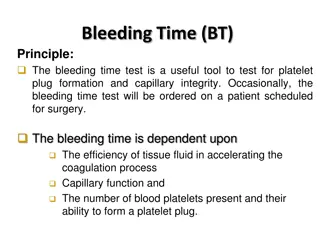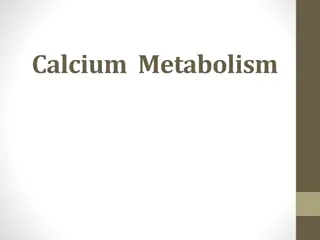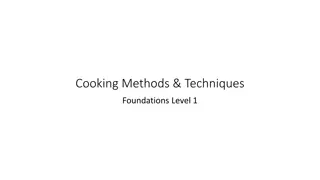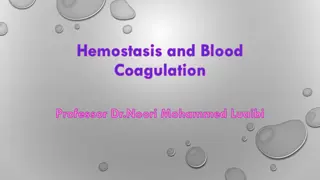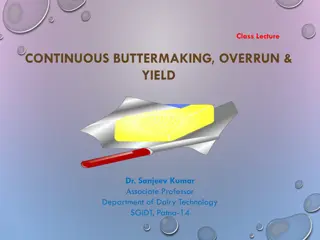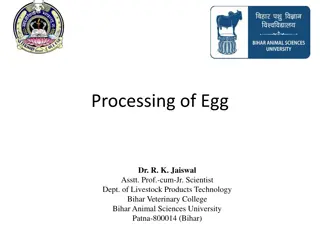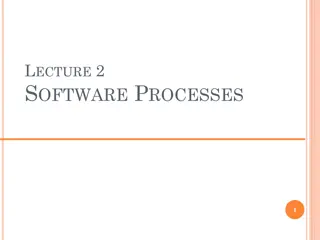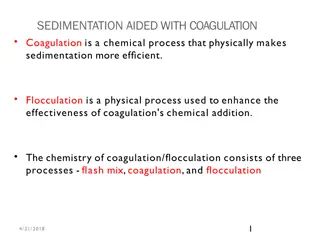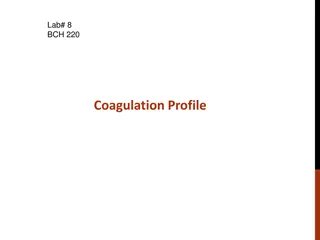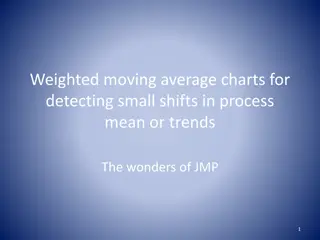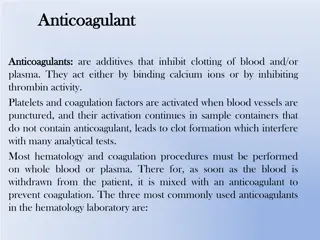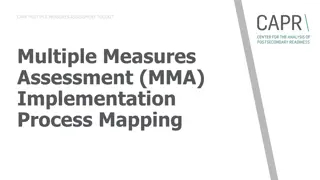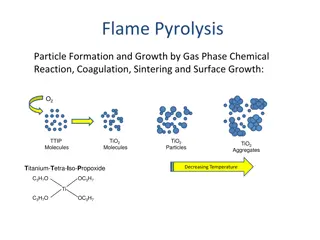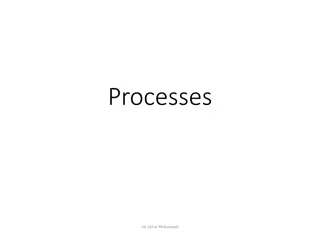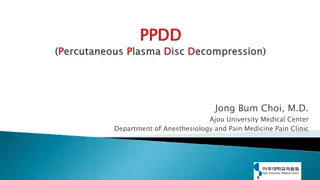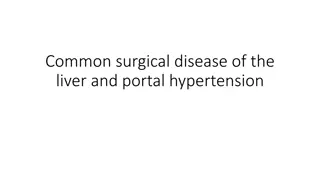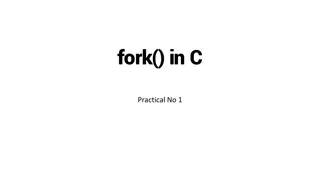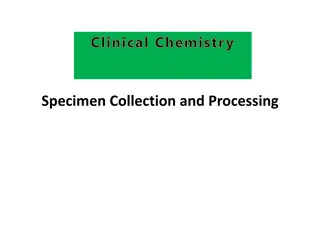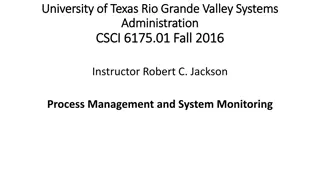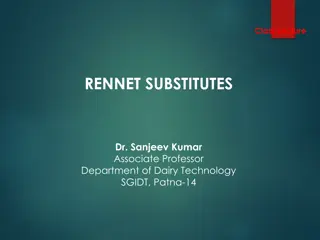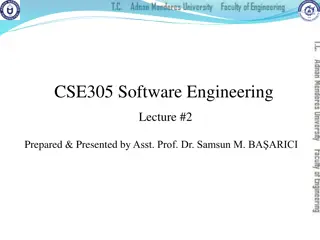Coagulation Analyzers
The current instrumentation used for coagulation analysis in India through the MoHFW/CDC/BD partnership project. Understand the basic principles and various detection methods used in coagulation testing.
0 views • 14 slides
Research Antibodies and Reagents Market
Recombinant Coagulation Factors Market by Type (Factor VIII, Factor IX), Source (CHO, HEK), Application (Hemophilia (Type A, Type B), Others), End User (Hospitals, Clinical Research Laboratories) - Global Forecast to 2030
2 views • 3 slides
In Vitro Diagnostic (IVD) Products Market Size
\u2018Indonesia IVD Market by Product (Kits, Instruments, Software), Technology (Immunoassay, Hematology, Coagulation, Diabetes, Molecular), Application (Infectious Diseases, Cardiology, Oncology), and End User (Hospital, Diagnostic Lab, Home Care) - Forecast to 2029.\u2019\nAccording to this latest
2 views • 4 slides
Introduction to Optimization in Process Engineering
Optimization in process engineering involves obtaining the best possible solution for a given process by minimizing or maximizing a specific performance criterion while considering various constraints. This process is crucial for achieving improved yields, reducing pollutants, energy consumption, an
10 views • 52 slides
Understanding Bleeding Time and Coagulation Time Tests
The Bleeding Time (BT) test evaluates platelet plug formation and capillary integrity, crucial for surgery preparations. Prolonged bleeding times indicate low platelet count or dysfunction. The Duke method is one way to determine Bleeding Time. Sources of error, such as medication interference, impr
5 views • 8 slides
Understanding Blood Clotting Factors in the Human Body
Blood clotting factors play a crucial role in the coagulation process to prevent excessive bleeding. Factors such as Fibrinogen (Factor-I), Prothrombin (Factor-II), Thromboplastin (Factor-III), Calcium Ions (Factor-IV), Labile Factor (Factor-V), and Stable Factor (Factor-VII) are essential for the c
7 views • 14 slides
Understanding Coagulation Profile in Hemostasis
Coagulation profile testing is crucial in assessing blood clotting ability. The process of coagulation is essential for hemostasis to prevent bleeding or clotting disorders. This summary explores the steps involved in hemostasis, the clotting cascade, and the triggers for the extrinsic and intrinsic
6 views • 14 slides
Recombinant Coagulation Factors
Explore $24.21 billion Recombinant Coagulation Factors Market: Get exclusive insights on key market trends, segments, geographical analysis, & competitive analysis!\n
2 views • 4 slides
A Life of a Process
This content delves into the creation and management of processes in operating systems, covering concepts such as forking processes, process states, address space management, copying processes, and key functions involved in process handling. It provides insights on constructing processes from scratc
0 views • 35 slides
Understanding Calcium Metabolism: A Comprehensive Overview
Calcium metabolism plays a critical role in various bodily functions like nerve conduction, coagulation, and bone mineralization. It involves processes such as calcium absorption, distribution, and homeostasis, regulated by hormones like PTH and calcitriol. The balance of calcium in the body is cruc
7 views • 50 slides
Understanding Cooking Techniques and Their Effects on Food
Cooking methods play a crucial role in transforming food through processes like dry, moist, or combination cooking. Heat transfer methods such as conduction, convection, and radiation influence how food is cooked. Dry cooking techniques use oil or hot air, while moist cooking involves using liquid.
0 views • 9 slides
Understanding Shock and Blood Transfusion in Surgery
Shock is a state of low tissue perfusion leading to metabolic changes like anaerobic metabolism and acidosis. As cellular hypoxia progresses, immune and coagulation responses are activated, impacting cardiovascular, respiratory, renal, and endocrine systems. Shock can be classified into hypovolaemic
0 views • 38 slides
Understanding Process Costing in Manufacturing Industries
Process costing is a widely used method in mass production industries like steel and chemicals. It involves accumulating costs process-wise for standardized products resulting from sequential operations. Essential characteristics include continuous production, standardized products, and handling nor
1 views • 18 slides
Understanding Coagulants, Anti-Coagulants, and Blood Components in Pharmaceuticals
Mrs. Sashmitha Samuel, an Associate Professor in the Department of Pharmaceutical Chemistry, delves into the importance of coagulants, anti-coagulants, and the components of blood. Blood, a vital fluid in the body, carries nutrients, oxygen, and helps remove waste products. Learn about the process o
1 views • 43 slides
Hemostasis and Blood Coagulation Mechanisms Explained
Hemostasis refers to the prevention of blood loss through vascular constriction, platelet plug formation, blood clotting, and fibrous tissue growth. Vascular constriction occurs immediately after vessel damage, initiated by myogenic spasm, autacoid factors, and nervous reflexes. Platelet plug format
0 views • 25 slides
Principles of Continuous Buttermaking Process
The class lecture discusses the continuous buttermaking process, emphasizing the principles involved such as churning process, concentration & phase reversal process, emulsification process, and the science of rheology. It also covers factors affecting overrun and yield in butter production, along w
0 views • 11 slides
Overview of Egg Processing and Functional Properties
Egg processing involves the production of various convenience forms of eggs for commercial, food service, and home use, including refrigerated liquid products, frozen products, and dried or specialty products. The process includes washing, breaking, pasteurization, and classification into different
0 views • 11 slides
Understanding Fabric Spreading Process in Apparel Industry
Fabric spreading is a crucial process in the apparel industry where fabric is cut into specific lengths and layered to form plies. The process involves aligning fabric ply, maintaining correct tension, ensuring flatness, eliminating flaws, and more. Manual and mechanical spreading methods are common
0 views • 17 slides
Understanding Software Processes and Models
This lecture discusses software processes, models, and activities involved in requirements engineering, software development, testing, and evolution. It covers topics such as process models, computer-aided software engineering (CASE) technology, software specification, design, validation, and evolut
2 views • 25 slides
Understanding Sedimentation Aided with Coagulation and Flocculation
Sedimentation aided with coagulation and flocculation is a chemical and physical process used in water treatment to efficiently remove impurities and particles. Coagulation involves adding chemicals to neutralize particles, while flocculation helps in forming larger clumps for easier removal. The en
1 views • 54 slides
Understanding Coagulation Profile: A Comprehensive Overview
Coagulation is a crucial process in hemostasis that involves clot formation. This profile delves into estimating clotting time, bleeding time, and prothrombin time to assess coagulation status. Explore the mechanisms of hemostasis, clotting cascade, triggers of intrinsic and extrinsic pathways, and
0 views • 12 slides
Understanding Weighted Moving Average Charts for Process Monitoring
Weighted moving average charts are powerful tools for detecting small shifts and trends in process means. By utilizing Uniformly Weighted Moving Average (UWMA) charts and Exponentially Weighted Moving Average (EWMA) charts, organizations can monitor and identify changes in process means with precisi
1 views • 29 slides
Understanding Anticoagulants in Laboratory Hematology
Anticoagulants are crucial additives that prevent blood clotting during laboratory procedures. The commonly used anticoagulants include EDTA, sodium citrate, and heparin, each with specific concentrations, modes of action, and color-coded identifications. EDTA is ideal for blood cell counts, sodium
0 views • 6 slides
USDA Robotic Process Automation (RPA) Assessment and Development Process
The USDA conducted a Robotic Process Automation (RPA) Process Assessment in July 2019, involving process robotics capabilities, development process under the Federated Model, and the lifecycle of a bot project. The RPA development process includes steps like requesting automation, process definition
1 views • 17 slides
Understanding Control Plans in Process Management
A Control Plan is vital in controlling risks identified in the FMEA process, focusing on process and product characteristics, customer requirements, and establishing reaction plans for out-of-control conditions. It serves as a central document for communicating control methods and includes key infor
1 views • 20 slides
Implementation Guide for Multiple Measures Assessment Toolkit
Explore the process of implementing a Multiple Measures Assessment (MMA) toolkit on your campus through process mapping. Learn how to use process maps to visualize the placement process post-implementation and understand the differences from your current process. Discover the significance of process
0 views • 13 slides
Flame Pyrolysis: Particle Formation and Growth Mechanisms
Understanding the intricacies of flame pyrolysis for particle formation and growth involving gas phase chemical reactions, coagulation, sintering, and surface growth processes. The method explores the effects of different reactants, temperatures, nozzle quenching, and electric field control on parti
0 views • 53 slides
Understanding Processes and Process Management Theory by Ali Akbar Mohammadi
Delve into the intriguing world of processes, process scheduling, and process control in operating systems through the detailed insights provided by Ali Akbar Mohammadi. Explore key concepts such as process states, process control blocks, CPU switching, and context switching to enhance your understa
0 views • 33 slides
Title IX Webinar #3 on Investigation and Hearing Process Changes
This webinar delves into the changes in the investigation and hearing process brought about by the new Title IX regulations. Starting with the formal complaint submission, it covers important aspects such as notice requirements, pre-investigation process documents, and the initiation of the investig
0 views • 41 slides
Brigade Commander and Staff Selection Process Decision Briefing
In the decision briefing for the selection process of APS JROTC Brigade Commander and Staff, the purpose is to determine the best process that meets the needs, constraints, and preferences. The plan is to implement a standardized nomination and evaluation process in the selection of Brigade Commande
0 views • 18 slides
Ablation Techniques in Medical Practice
Ablation procedures like PPDD and Coagulation are effective methods for treating various conditions such as cardiac arrhythmias, tumors, and wound debridement. RF ablation offers advantages such as precise targeting, lower tissue temperatures, and tissue preservation at the molecular level. Understa
0 views • 33 slides
Overview of Common Surgical Liver Diseases and Portal Hypertension
The liver plays a crucial role in metabolism, coagulation, and immune function. Surgical diseases of the liver, such as liver cysts and cavernous haemangiomas, can impact its normal functions. Imaging modalities like ultrasound (US), CT scans, and MRI are essential for diagnosing and staging liver t
0 views • 46 slides
Understanding Anticoagulants: Mechanisms, Indications, and Limitations
Anticoagulants play a crucial role in preventing blood clotting and are used in various medical conditions such as myocardial infarction and deep venous thrombosis. They include heparin, warfarin, and antiplatelet agents like aspirin. This article explores the mechanisms of action, indications, and
0 views • 29 slides
Understanding fork() System Call in C Programming
Demonstrates the concept of fork() system call in C programming, which creates a new process called child process that runs concurrently with the parent process. The child process inherits the program counter, CPU registers, and open files from the parent process. The return values of fork() indicat
0 views • 5 slides
Clinical Chemistry Specimen Collection and Processing Overview
Clinical chemistry specimen collection involves obtaining blood samples for analysis. Serum and plasma are commonly used specimens, each requiring specific handling. Different anticoagulants like heparin are used to prevent blood clotting during sample processing. Heparin, a widely used anticoagulan
0 views • 15 slides
Understanding Process Management and System Monitoring at University of Texas Rio Grande Valley Systems
Explore the intricacies of process management and system monitoring in the context of CSCI 6175.01 Fall 2016 at University of Texas Rio Grande Valley Systems. Learn about processes, process control blocks, process states, process communication, process priority levels, and tools for managing process
0 views • 9 slides
Exploring Rennet Substitutes in Cheese Making
Discover alternative options to traditional rennet for cheese production, including plant-based enzymes like papain and bromelain, as well as microbial rennet derived from bacteria. Learn about recombinant chymosin and its advantages in cheese making, such as reduced bitterness and predictable coagu
0 views • 6 slides
Understanding High-Frequency Surgery: Applications and Effects
High-frequency (HF) surgery involves the application of electrical energy to induce thermal changes in tissue cells, used for hemostasis, cutting, and sealing in various surgical procedures. The technique prevents undesirable bioelectrical and biothermal effects like the electrolytic and faradic eff
0 views • 25 slides
Modern Approach to Systems Analysis and Design in Software Engineering
This lecture covers various topics in software engineering, including system analysis and design, software process models, system development life cycle, coping with change, and process improvement. It discusses the software process, process activities, software process models, and software process
0 views • 91 slides
Water Supply System in Cape Town: Overview and Infrastructure
Cape Town's water supply system, managed by the City of Cape Town's Water and Sanitation Department, serves over 4 million residents. The system relies on raw water from dams and reservoirs, with treatment plants ensuring water quality through processes like coagulation and disinfection. The distrib
0 views • 10 slides
